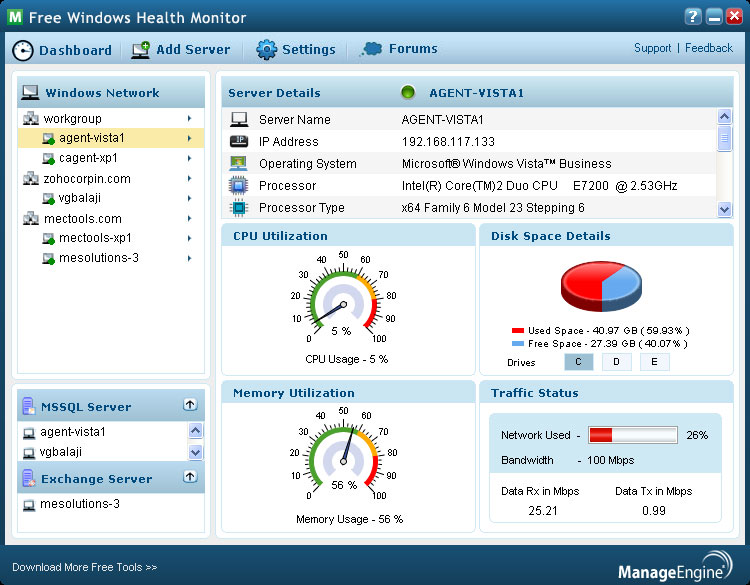One way to manage a network is to move around from system to system, forever checking what's going on. It might be easier to use Windows Health Monitor, though, which provides the core details on up to twenty of your network PCs from one convenient interface.
The program can monitor both servers and desktops, and trackx a variety of system health indicators: CPU, memory and disk utilisation, disk read and write activity, network bandwidth use, even key server applications (Exchange, Microsoft SQL Server).
The results are then available in a simple Dashboard view, which alerts you to the top three systems in terms of CPU, memory and disk utilisation.
Or you can choose a particular monitored system and view all its details (including basic system information) on a single page.
As you might guess by the monitoring of apps like Exchange Server, Windows Health Monitor is aimed at business users. The program is designed to works just as well with small home networks, though: when adding a system to monitor, for instance, you can specify either its domain or workgroup.
Verdict:
A straightforward network monitor which provides plenty of useful information on your target systems





Your Comments & Opinion
Easily collect the MAC addresses for all your networked PCs
Find out more about your PC with this portable system information tool
Quickly discover and do carry out an inventory on all your networked PCs
Take a graphical view of network performance
Take a graphical view of network performance
A comprehensive network monitor/ analyzer
Monitor exactly how your network connection is being used in Lion
A free download manager for your USB drive
A free download manager for your USB drive
A free download manager for your USB drive
Remotely control or access another computer over the internet
Detect intruders on your wireless network